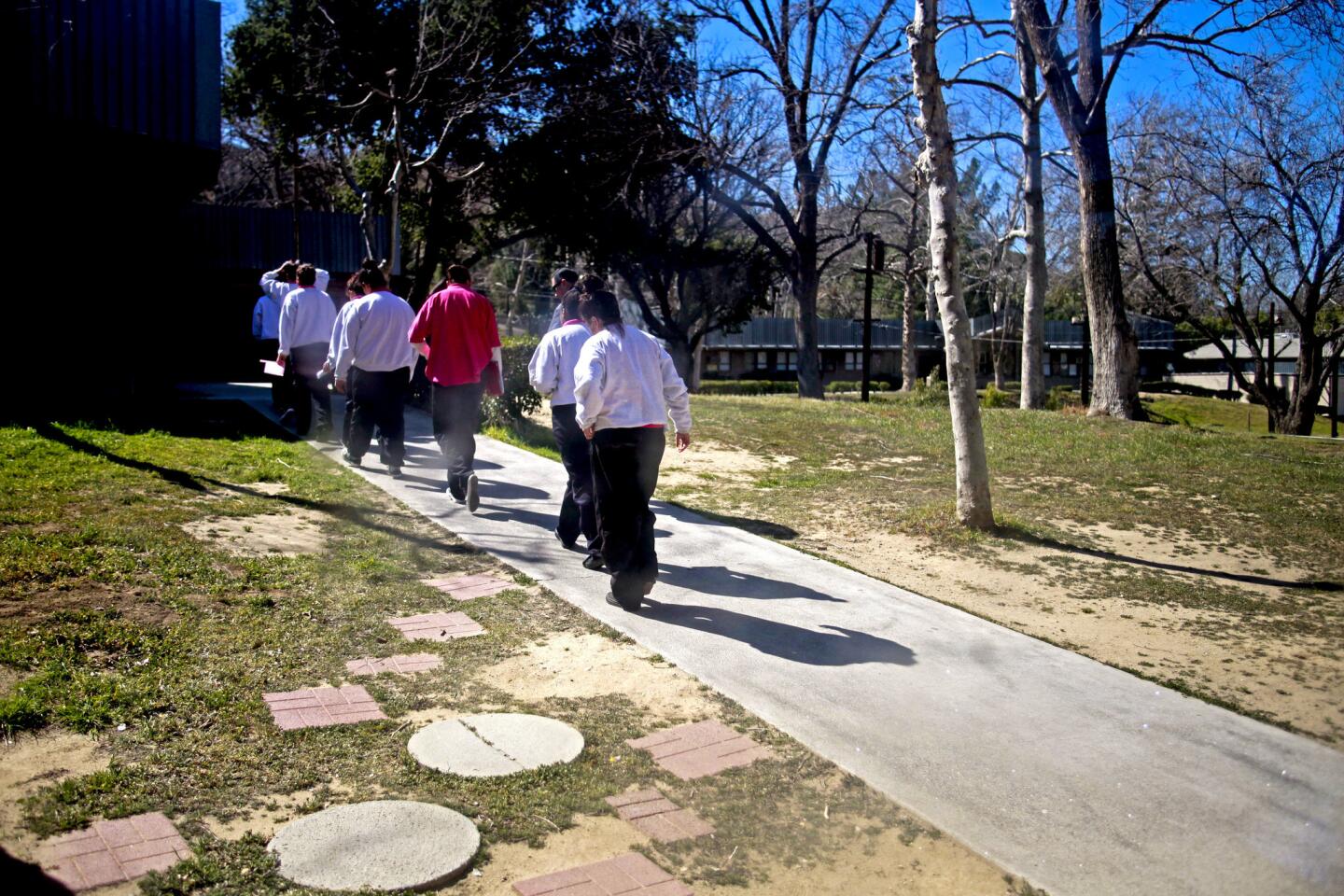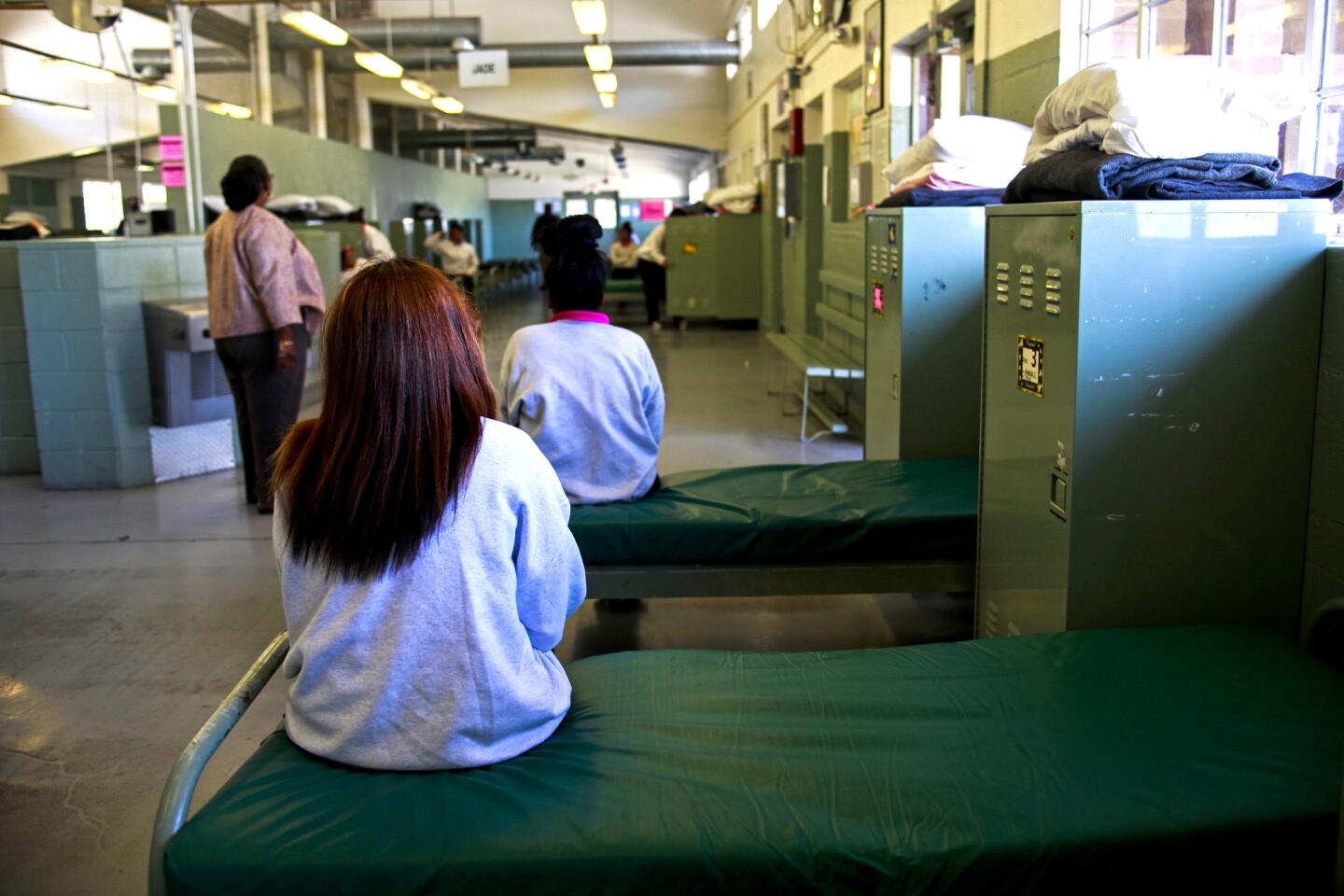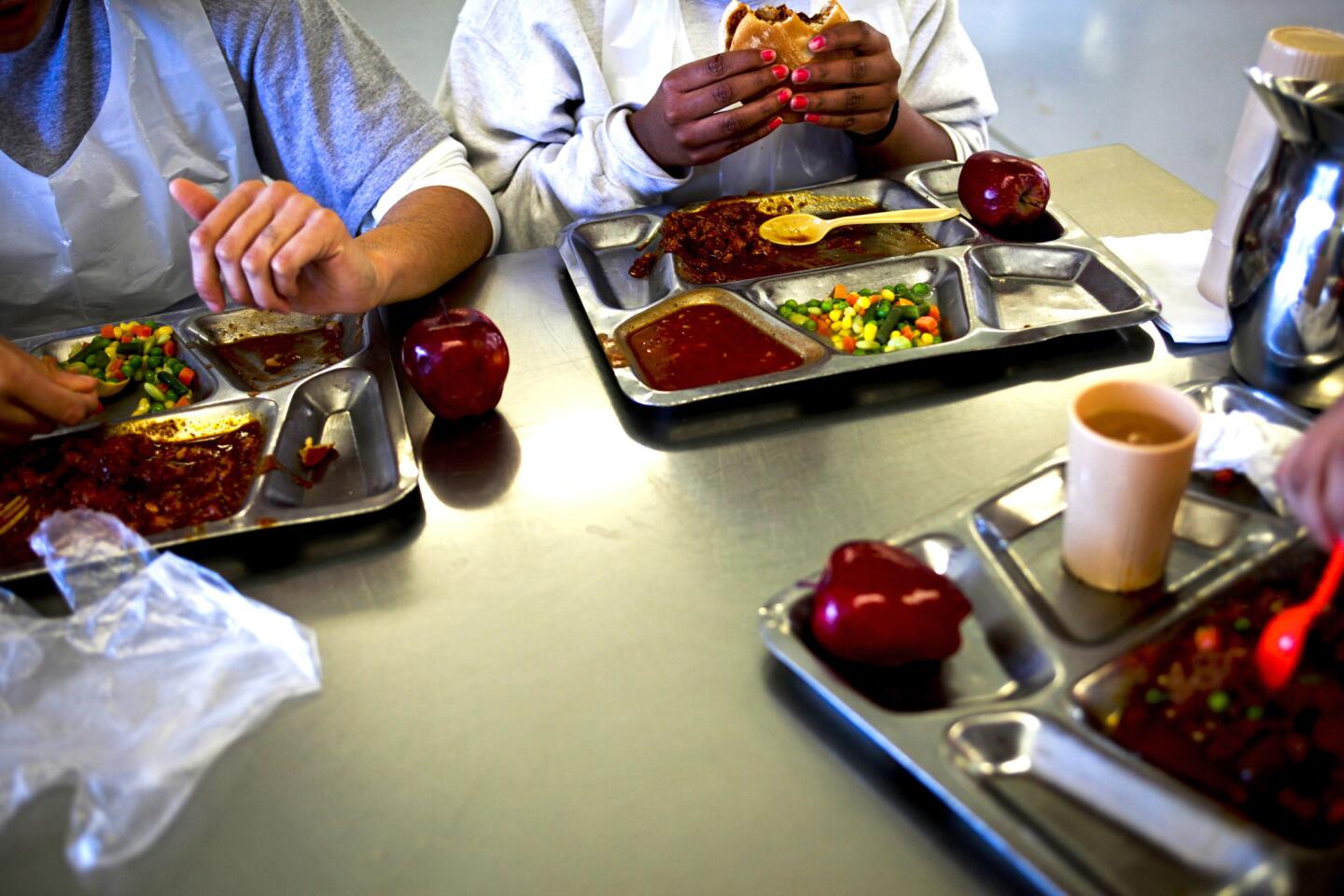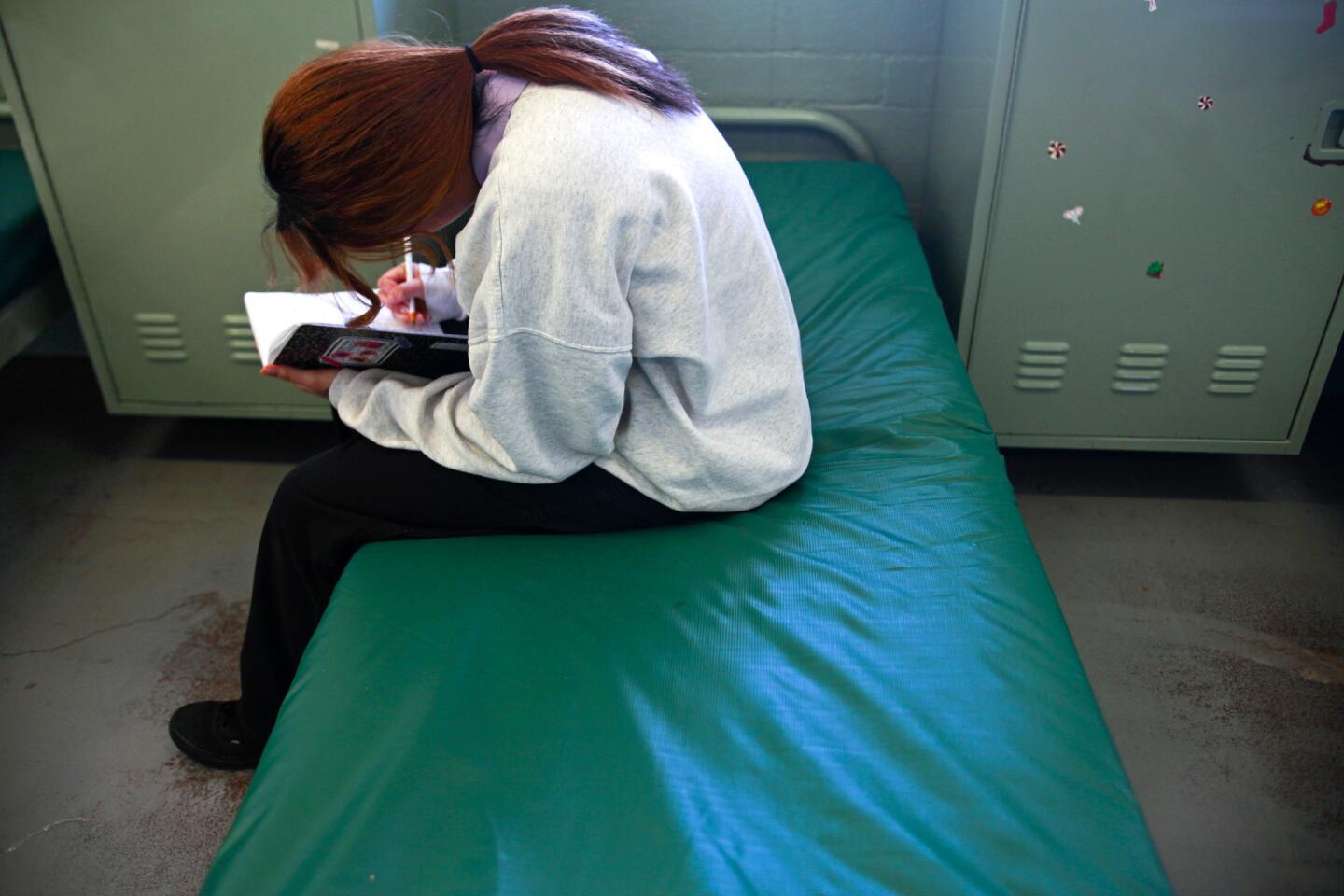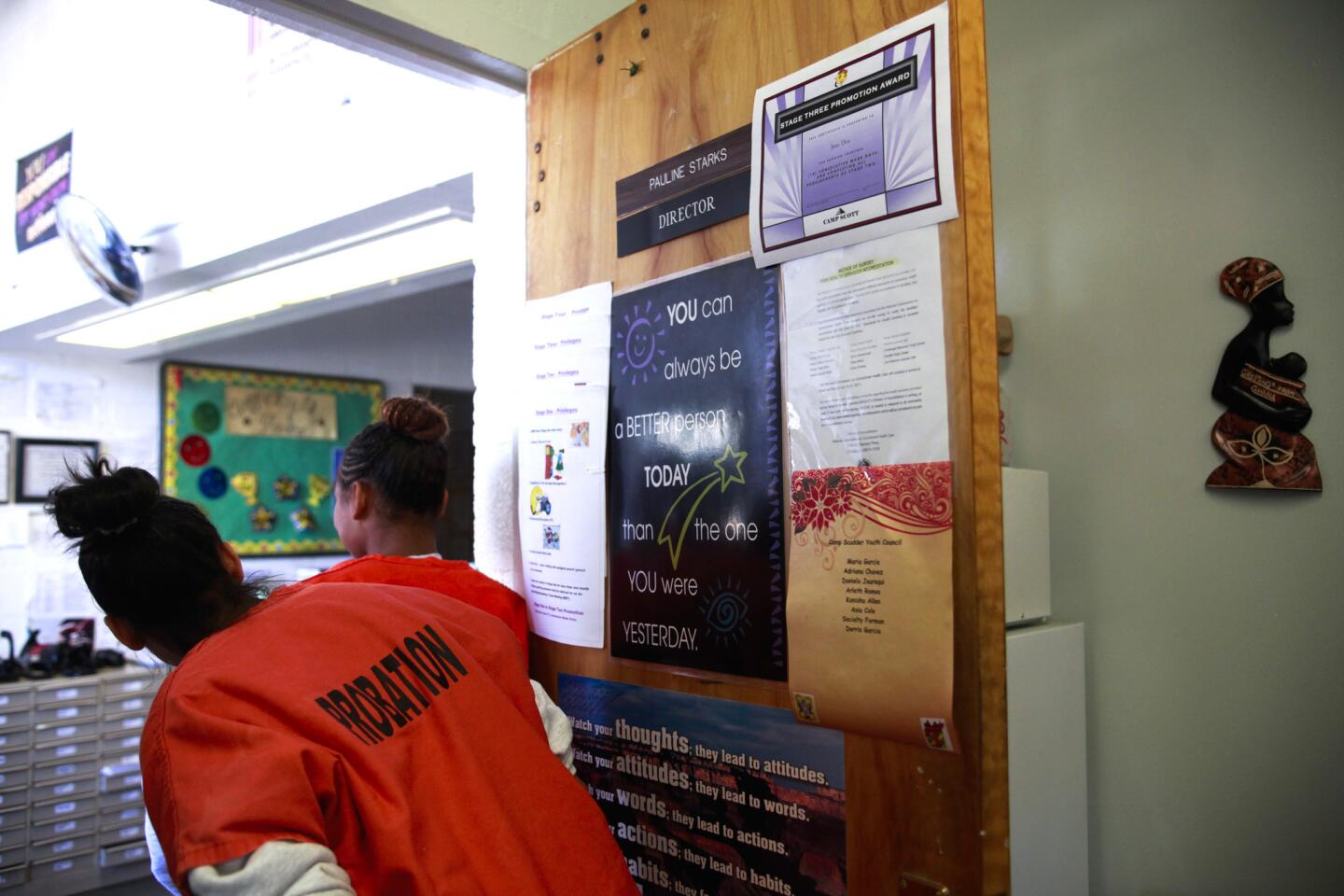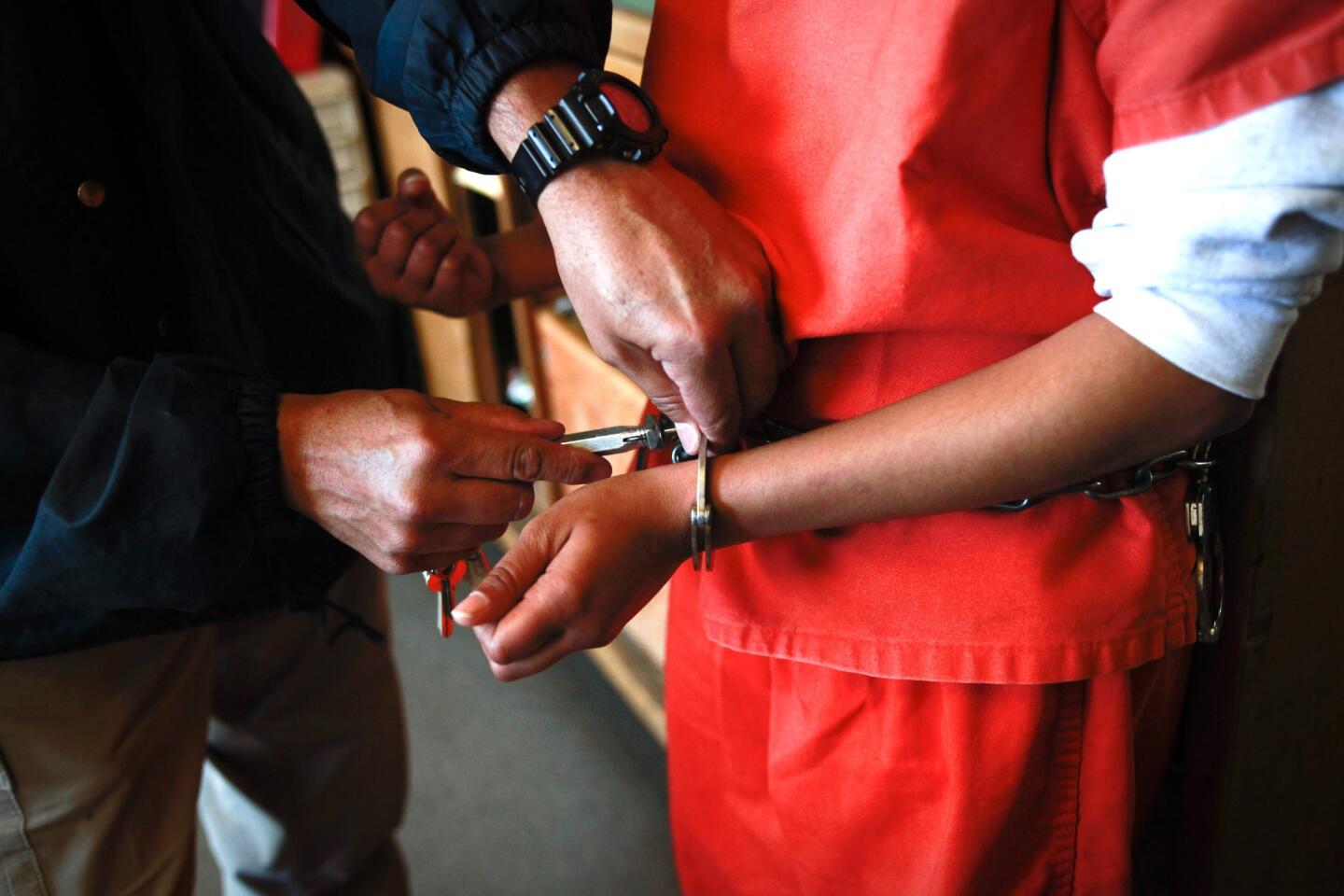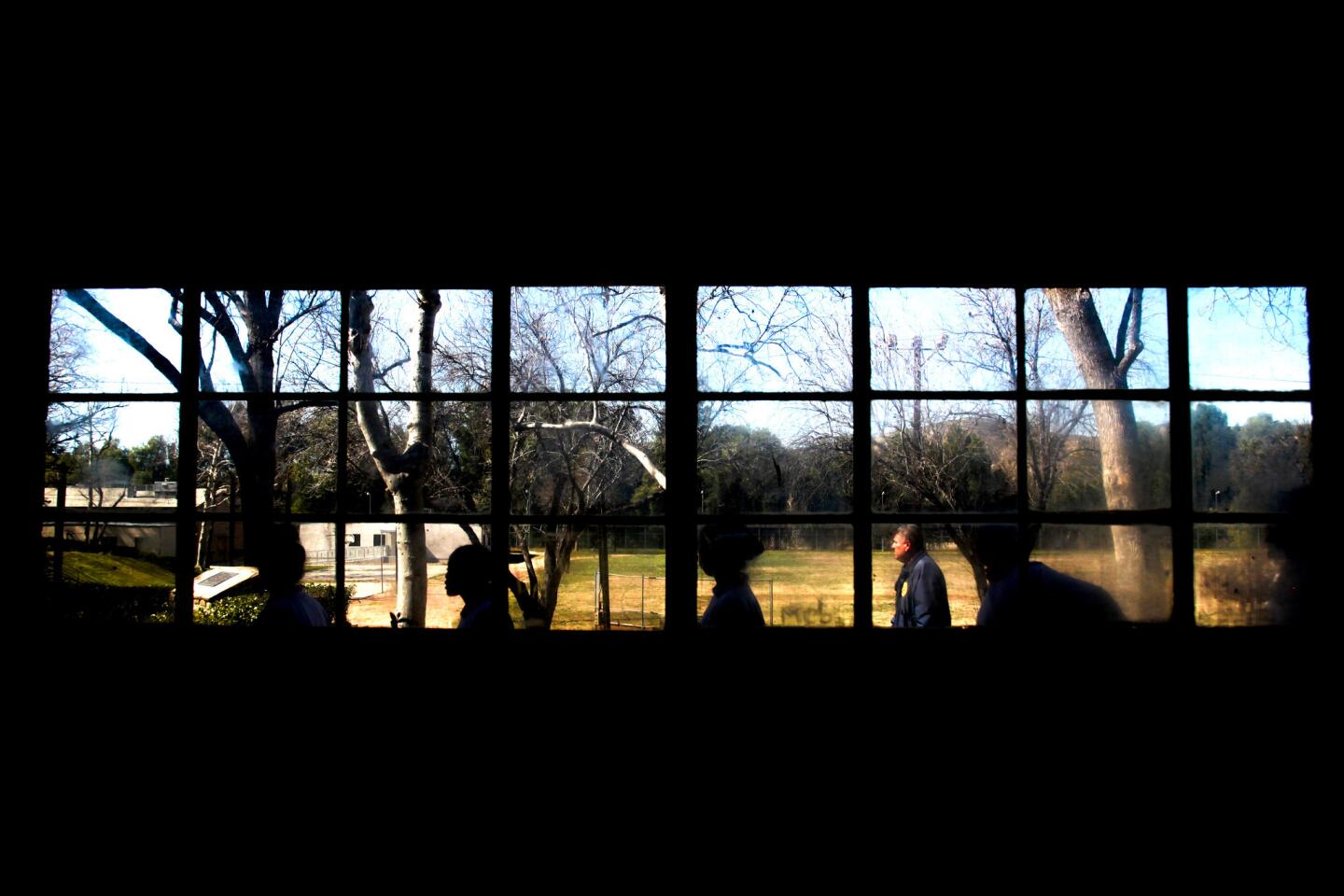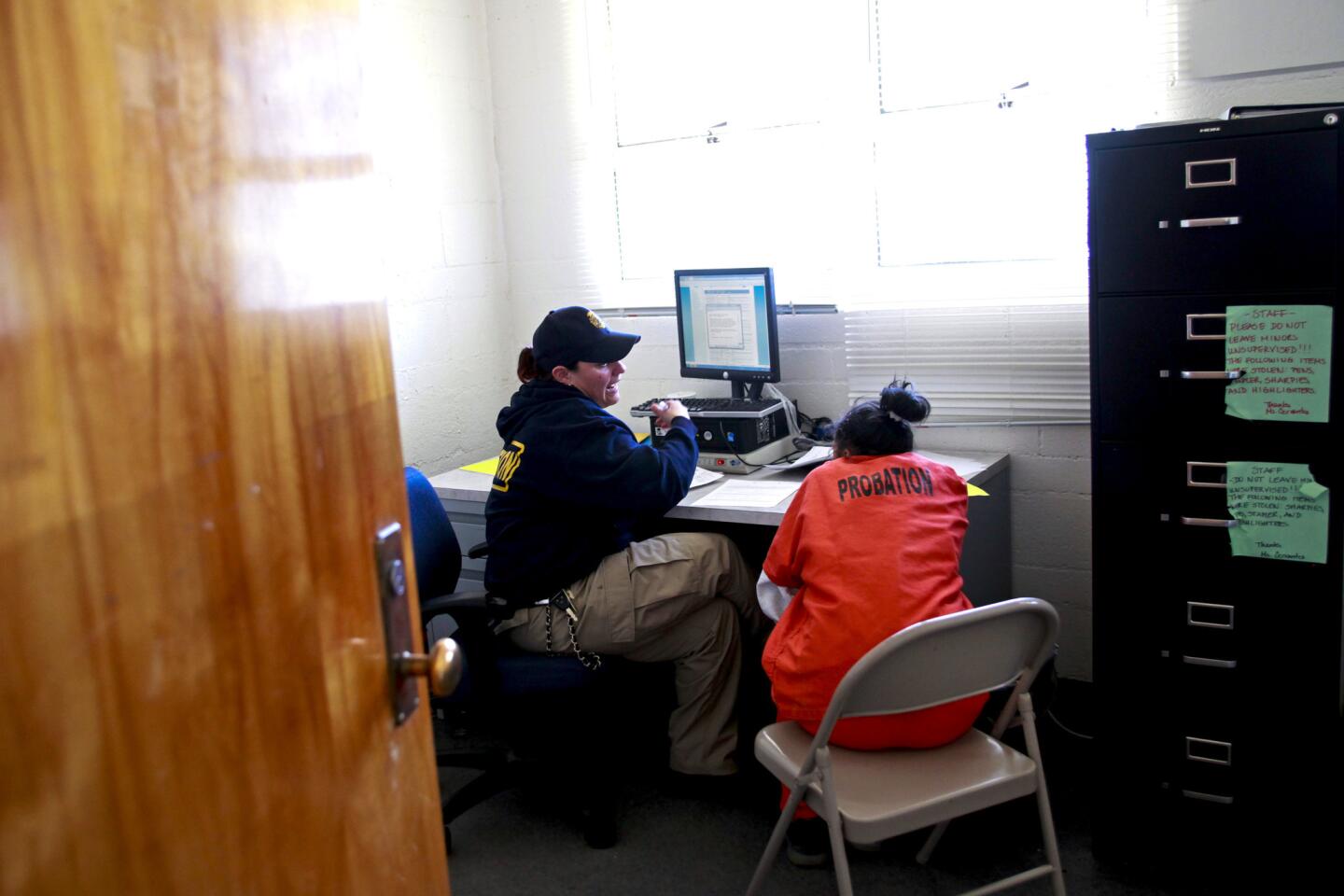Addressing girls’ health needs at juvenile detention centers
Latrice lifts the sleeve of her gray sweatshirt to reveal small, dark lines — scars from slicing her forearm over and over to drown out pain from years of sexual abuse. She says she was an alcoholic, dropped out of school in the eighth grade and got pregnant at 16.
Now 18, she is in Los Angeles County’s juvenile justice system because she violated probation. Latrice says she has been locked up more than 20 times in four years. Petite and talkative, she has attention deficit hyperactivity disorder and takes antidepressants.
Her health issues — and those of about 9,400 girls in juvenile detention centers around the nation — are serious and complex. Many of the girls don’t have regular doctors, so their physical and emotional problems often go undiagnosed and untreated. That continues when they enter a system that was designed for boys and has been slow to adapt to girls.
“Their health needs are different; they are more severe and more complicated than boys’,” said Catherine Gallagher, a George Mason University professor and an expert in juvenile justice. “They come in underserved.... They remain underserved.”
More than one-third of girls in custody nationwide have a history of sexual abuse, compared with 8% of boys. Girls also have had more physical abuse, suicide attempts and drug-related problems, according to the federal Office of Juvenile Justice and Delinquency Prevention. Few juvenile justice centers have shown they meet minimum healthcare standards, and girls are less likely than boys to get the care they need.
Research shows that many of their problems could be addressed if officials simply asked the right questions. But most detention center screeners are not health professionals and the questions are not designed for girls. Juvenile justice centers also don’t usually request medical records because they know they have the youths for just weeks or months.
Los Angeles County health and probation officials recently began working to better identify and treat the health and mental health problems of about 240 girls in custody. They are using a tool called the Girls Health Screen, a 117-question survey designed by Leslie Acoca, president of the L.A.-based National Girls Health and Justice Institute.
“If we don’t ask the questions, these girls’ health needs are invisible,” said Acoca, who added that her goals are to improve the girls’ health and reduce the odds of their re-arrest.
The screening program is being tested at Camp Scudder, a locked facility in Santa Clarita run by the L.A. County Probation Department. Director Pauline Starks said many of the girls, who spend between three and 12 months at camp, have a history of trauma or victimization. They are in the juvenile justice system because of crimes such as robbery, assault, prostitution, vandalism and truancy.
“Our girls come to us with a lot of emotional issues, a lot of medical issues,” she said. The additional screening “gives us a well-rounded picture of the girls and what we need to address immediately.”
The Girls Health Screen is the first of its kind and targets an “extraordinarily vulnerable” population that has not had consistent healthcare, said Francine Sherman, who teaches juvenile justice at Boston College Law School.
Pregnancy is among the most common issues; about a third of girls entering juvenile facilities nationwide have been pregnant in the past month. The girls are being identified by their first or middle names under a court order allowing access into Camp Scudder.
One of the girls, Sam, has a 9-month-old baby and is expecting her second. She says both her parents used drugs and she was raised by their drug counselor. Sam, 17, has asthma, ADHD and depression. At home, she smoked marijuana and spent days sleeping. “I would cry out of nowhere,” she says, adding that she didn’t see a therapist until she got locked up.
Some of the health problems are linked to poverty. Kristina, 18, who committed an assault with a deadly weapon, says she weighed less than 100 pounds when she arrived and counselors assumed she was addicted to crack. She told them she was thin because her family couldn’t afford enough food. She gained 15 pounds in two weeks. “I’m hungry all the time,” says Kristina, whose face is still gaunt.
In the past, she says, smoking marijuana helped her escape. Even though she sees a therapist at camp, Kristina says, “I can’t really open my book and let her read it.”
One recent afternoon, most of the 40 girls in detention — wearing matching collared pink and purple shirts and black pants — are in school on the camp’s grounds. A shuttle van pulls up and 14-year-old Marie, in shackles, steps out. Marie says she was in custody for using drugs and repeatedly running away from a group home. After explaining the rules, probation officer Katherine Russo asks Marie a few health questions, including if she is pregnant, has any serious injuries or is on any medication. Marie says no.
Then Russo hands her the Girls Health Screen to complete. Some of the questions address common problems such as earaches and food allergies. But many delve deeper: Have you ever cut or burned yourself on purpose? Has anyone ever made you have sex when you didn’t want to? Do you have a place that you feel is safe to live when you get out of here?
Of the first 70 screened with the girls’ questionnaire since July, 28 said they had witnessed traumatic injury or death, 15 had been pregnant and 26 had used marijuana in the last three months, Acoca said. Twenty-eight of the girls needed glasses but didn’t have them.
Marie leans over the form and quickly circles her answers. None of her responses signal she needs immediate attention by a doctor or mental health counselor, but a few raise red flags, including a yes answer to the question, “Have you ever seen someone badly hurt or killed in real life?”
All the girls receive an initial health evaluation at juvenile hall but aren’t always forthcoming, said Raymond Perry, medical director of Juvenile Court Health Services. “There are things we miss even when we ask,” he said. “It’s helpful to have another tool.”
Even if officials do identify the health problems, however, the treatment they receive may not continue when they leave. The lack of electronic health records, and the fact that girls’ Medi-Cal coverage is suspended while they are in detention, makes continuity difficult.
Probation, mental health and health officials said they are trying to better link the girls to care in the community. Acoca said she is finishing an electronic version of the health screen that could follow girls when they return home.
Tapping her leg nervously, Latrice says she hopes to keep seeing doctors and therapists when she is released from Camp Scudder. She knows her past is what got her in trouble and she wants to change her future; she wants to become a nurse.
“My daughter is my motivation,” she says.
More to Read
Start your day right
Sign up for Essential California for news, features and recommendations from the L.A. Times and beyond in your inbox six days a week.
You may occasionally receive promotional content from the Los Angeles Times.
